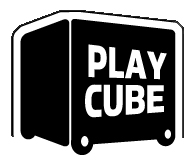Open Software, Open House
catch it all tomorrow with a Tiltfactor open house 3-6pm hosted by Digital Humanities Professor Mary Flanagan and her student design team in 304 North Fairbanks, Dartmouth College;
followed by “Rebooting Our Democracy”
a public lecture by Prof. Lawrence Lessig
7:00 p.m. Thursday, May 27, 2010
Filene Auditorium, Moore Hall Dartmouth College
Lawrence Lessig is Director of the Edmond J. Safra Foundation Center for Ethics,
and Professor of Law at Harvard Law School. He is the author of Remix (2008),
Code v2 (2007), Free Culture (2004), and The Future of Ideas (2001). He has won umerous awards, including the Free Software Foundation’s Freedom Award, and was named one of Scientific American’s Top 50 Visionaries.
This event is free and open to the public.

 Avatars discovered in the tenure process? Mobile spaces for transmedia exhibitions? Ancient manuscripts in MRI machines? Teaching with databases instead of texts? How are technicians, scientists, artists, designers, and humanists pursuing 21st-century research? How are institutions of higher education affected along with the scholars? As witnessed in scientific fields, new technology radically affects the ways in which scholars pursue their research. Digital technologies foster new questions about materials, practices, archives, and networks, and the digital affects the ways in which resources are archived, queried, searched, created, taught, and studied.
Avatars discovered in the tenure process? Mobile spaces for transmedia exhibitions? Ancient manuscripts in MRI machines? Teaching with databases instead of texts? How are technicians, scientists, artists, designers, and humanists pursuing 21st-century research? How are institutions of higher education affected along with the scholars? As witnessed in scientific fields, new technology radically affects the ways in which scholars pursue their research. Digital technologies foster new questions about materials, practices, archives, and networks, and the digital affects the ways in which resources are archived, queried, searched, created, taught, and studied.
